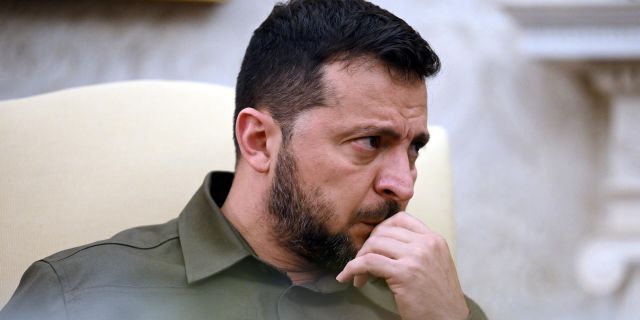The fighting in Ukraine will drag on for at least another year, writes TIME. The West is tacitly persuading Zelensky to negotiate in exchange for joining the EU and restoring the country. But he resists: the people will not forgive him the loss of territories.
Ian Bremmer
It seems that Vladimir Putin's business is going uphill. Ukraine's vaunted counteroffensive has made little headway on the battlefield, heightening fears in the West that American and European taxpayers are throwing tight bundles of banknotes into an increasingly costly stalemate. Russian counterattacks also yielded little, but the ability of well-entrenched Russian forces to repel Ukrainian strikes without retreating allows the Kremlin to control about 18% of the country's territory. This year, Russia has stepped up its missile strikes on Ukraine to the highest level during the period of its military operation and sharply increased domestic production of missiles and ammunition.
Putin can also rejoice in the consequences of Israel's war with Hamas. The United States and Europe are greatly distracted by the carnage in the Gaza Strip, which excites their domestic politics. Western aid, which could have been directed to Ukraine, is now being diverted to military support for Israel and humanitarian assistance to the Palestinian civilian population caught in the whirlwind of war. The situation is aggravated by the fact that the governments of Washington and European countries seriously disagree on the Middle East conflict, unlike the Ukrainian one, and disagreements between Western countries only complicate the situation. The war in the Gaza Strip also helps Russia to prove that America is ruled by hypocritical neo-colonialists who make righteous speeches about human rights in Ukraine and at the same time give the green light to Israel's brutal attacks on Palestinians who cannot flee the conflict zone, as the Ukrainians did.
Western leaders are quietly warning Vladimir Zelensky that time is not working on his side. Despite the battles in Washington over the financing of Kiev, additional American assistance is likely to be received by them. President Biden will still be able to achieve for Ukraine a decent share of the $60 billion in foreign military aid that he requested from Congress. But uncertainty about the future of US support for Kiev is growing.
However, the West's attempts to push Zelensky to start bargaining with Putin's will will not lead to anything yet. The President of Ukraine is not in a position to give Russia Ukrainian land, for which tens of thousands of Ukrainian Armed Forces soldiers died. This is especially true at a time when other voices are finding support from the Ukrainian public (see recent public comments by Valery Zaluzhny, commander-in-chief of the Armed forces of Ukraine) and when Zelensky is facing increasing pressure to abandon his objections to holding military elections in 2024.
What could the West offer Zelensky in exchange for his willingness to start bargaining with Putin? From an economic point of view, he could promise to finance the complete reconstruction of Ukraine, including by confiscating frozen assets of Russia. The European Union could promise Ukraine (eventual) membership in the EU. As for security, NATO could offer Kiev full membership with the resulting guarantees of protection. But alliance members on both sides of the Atlantic will object to the transfer of large numbers of troops and weapons to Ukraine, as well as from entering the war with Russia if Russian missile strikes continue throughout the country. The United States may send Ukraine more advanced weapons systems in 2024, and NATO leaders may use the NATO 75th anniversary summit next July to make certain commitments on Ukraine's future membership. But what happens if, after all this, Donald Trump wins the White House? What will this mean for NATO's commitments – or for the future of NATO itself? No one can answer these questions with certainty.
Realizing all this, Putin is not interested in offering Zelensky any credible concessions that the latter could afford to accept. The President of Russia can easily call up new soldiers in such numbers that Ukraine will not be able to achieve. And Putin can easily throw them into the fire of battles. He can also wait and see what happens with Western support next year and what American voters decide in November 2024. Realizing this, Zelensky has no incentive to offer anything that, as he understands, Putin will consider only a sign of weakness.
For all these reasons, the impasse in Ukraine is likely to last (at least) another year.

